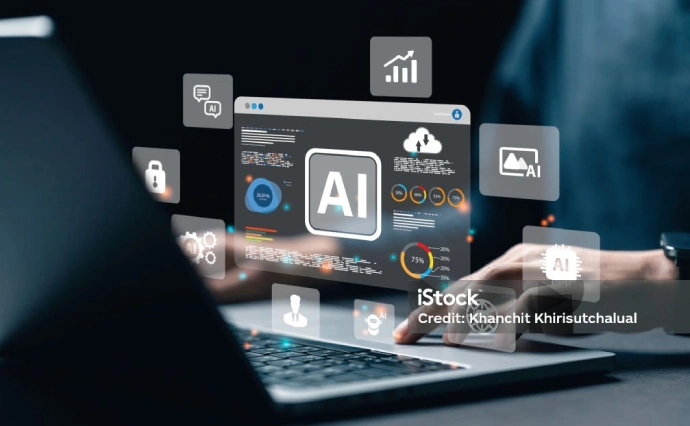Tech Advances In today’s rapidly changing world, tech advances are playing a crucial role in shaping our future. From groundbreaking gadgets to revolutionary software, these innovations are transforming how we live, work, and interact. This article will dive into the latest tech advances and explore how they are influencing various aspects of our daily lives.
Tech Advances in Communication
The Rise of Digital Communication Tools
Tech advances have revolutionized how we communicate with one another. Tools like instant messaging apps, video conferencing platforms, and social media have made staying in touch easier than ever. For instance, platforms such as Zoom and WhatsApp allow us to connect with friends and colleagues across the globe in real time.
Instant messaging apps have become a staple in personal and professional communication. They offer a convenient way to exchange messages instantly, without the need for phone calls or emails. Additionally, video conferencing tools have made virtual meetings more effective by providing face, to-face interaction, which enhances collaboration and understanding.
Social media platforms have also played a significant role in shaping how we share information and connect with others, creating online communities and fostering global conversations.
The Impact of AI on Communication
Artificial Intelligence (AI) is another significant tech advance impacting communication. AI-powered chatbots and virtual assistants are now commonplace, helping businesses handle customer inquiries efficiently. These technologies can understand and respond to human language, making interactions smoother and more natural. Additionally, AI is being used to translate languages, breaking down barriers and making global communication more accessible.
AI chatbots are programmed to handle a wide range of customer service tasks, from answering frequently asked questions to processing transactions. This reduces the need for human intervention and allows businesses to provide 24/7 support. AI virtual assistants, such as Siri and Google Assistant, are designed to assist with everyday tasks, from setting reminders to answering questions.
Tech Advances in Education
Online Learning Platforms
One of the most notable tech advances in education is the rise of online learning platforms. Websites like Khan Academy and Coursera provide students with access to a wide range of subjects and courses from the comfort of their homes. These platforms use interactive tools and multimedia content to enhance learning experiences, making education more flexible and personalized.
Online learning platforms offer a variety of educational resources, including video lectures, quizzes, and interactive exercises. Students can learn at their own pace, allowing for a more customized learning experience. These platforms also provide access to courses from top universities and institutions, making high-quality education more accessible to learners worldwide.
Virtual and Augmented Reality
Virtual Reality (VR) and Augmented Reality (AR) are also transforming education. VR allows students to experience immersive environments, such as historical events or scientific simulations, in a way that traditional methods cannot. AR, on the other hand, overlays digital information onto the real world, helping students visualize complex concepts and interact with educational content in a more engaging way.
VR in education can transport students to different locations, providing an interactive experience that enhances understanding and retention. For example, students can explore ancient civilizations or conduct virtual science experiments, making learning more engaging and memorable. AR applications can display additional information about physical objects, such as historical landmarks or scientific phenomena, helping students grasp complex concepts through visual and interactive elements.

Tech Advances in Healthcare
Telemedicine and Remote Health Monitoring
In the healthcare sector, tech advances like telemedicine and remote health monitoring are changing how we receive medical care. Telemedicine enables patients to consult with doctors via video calls, reducing the need for in-person visits and making healthcare more accessible.
Remote health monitoring devices, such as wearable fitness trackers, allow individuals to track their health metrics and share them with healthcare providers in real time.
Telemedicine has become increasingly popular due to its convenience and accessibility. Patients can consult with healthcare professionals from the comfort of their homes, avoiding long wait times and travel expenses. Remote health monitoring devices provide valuable data on various health parameters, such as heart rate, blood pressure, and physical activity.
Robotics and AI in Surgery
Robotics and AI are also making significant strides in surgery. Robotic surgical systems offer precision and control that can enhance outcomes and reduce recovery times. AI is being used to analyze medical data and assist in diagnosis, providing doctors with valuable insights and improving patient care.
Robotic surgical systems, such as the da Vinci Surgical System, allow surgeons to perform minimally invasive procedures with greater accuracy. These systems use robotic arms controlled by the surgeon to perform delicate tasks, resulting in smaller incisions, less pain, and faster recovery for patients. AI algorithms can analyze medical images, such as X-rays and MRIs, to detect abnormalities and assist in diagnosis.
Tech Advances in Transportation
Electric and Autonomous Vehicles
The transportation industry is experiencing major tech advances with the development of electric and autonomous vehicles. Electric cars, like those from Tesla, are reducing our reliance on fossil fuels and decreasing carbon emissions. Autonomous vehicles, or self-driving cars, have the potential to make roads safer and more efficient by reducing human error and optimizing traffic flow.
Electric vehicles are becoming more popular as advancements in battery technology improve their range and performance. These vehicles offer a cleaner alternative to traditional gasoline-powered cars, contributing to a reduction in air pollution and greenhouse gas emissions. Autonomous vehicles use sensors, cameras, and AI algorithms to navigate roads and make driving decisions.
Smart Transportation Systems
Another exciting development is the rise of smart transportation systems. These systems use sensors and data analytics to manage traffic, improve public transit, and enhance overall efficiency. For example, smart traffic lights can adjust their timing based on real-time traffic conditions, reducing congestion and making commutes more predictable.
Smart transportation systems utilize a network of sensors and cameras to collect data on traffic patterns and road conditions. This information is used to optimize traffic signals, manage public transit schedules, and improve overall transportation infrastructure. By leveraging data analytics, these systems can reduce travel times, improve safety, and enhance the overall efficiency of transportation networks.
Tech Advances in Entertainment
Streaming Services and Digital Media
Tech advances have also transformed the entertainment industry. Streaming services like Netflix and Spotify have changed how we consume media, offering on-demand access to movies, TV shows, and music. These platforms use algorithms to recommend content based on our preferences, making it easier to discover new favorites.
Streaming services have revolutionized how we access and enjoy media. Instead of relying on physical media or scheduled TV broadcasts, users can watch or listen to content anytime, anywhere, with an internet connection. Personalized recommendations and curated playlists enhance the user experience, making it easier to find content that aligns with individual tastes and interests.
Virtual Reality Experiences
Virtual Reality (VR) is creating new possibilities in entertainment by providing immersive experiences. From virtual concerts to interactive gaming, VR technology allows users to experience media in a more engaging and interactive way. This tech advance is pushing the boundaries of traditional entertainment and opening up exciting new avenues for creativity.
VR experiences offer a sense of presence and immersion that traditional media cannot match. Users can attend virtual concerts, explore virtual worlds, or participate in interactive games with a level of engagement that enhances the overall entertainment experience. This technology is also being used to create new forms of storytelling and artistic expression, pushing the boundaries of what is possible in the entertainment industry.
FAQ
Q: What are some recent tech advances in communication?
Recent tech advances in communication include AI-powered chatbots, video conferencing tools like Zoom, and social media platforms that enhance global connectivity.
Q: How is AI impacting education?
AI is improving education through personalized learning experiences, virtual assistants that help with homework, and adaptive learning platforms that cater to individual student needs.
Q: What are the benefits of telemedicine?
Telemedicine offers benefits such as increased accessibility to healthcare, reduced travel time for patients, and the convenience of remote consultations with healthcare providers.
Q: How are electric vehicles contributing to environmental sustainability?
Electric vehicles reduce reliance on fossil fuels and lower carbon emissions, contributing to a cleaner and more sustainable environment.
Q: What role does Virtual Reality (VR) play in education?
VR enhances education by providing immersive learning experiences, allowing students to explore virtual environments and interact with educational content in new ways.
Q: What are smart transportation systems?
Smart transportation systems use technology to optimize traffic management, improve public transit, and enhance overall efficiency through data analytics and real-time monitoring.
Q: How are streaming services changing the entertainment industry?
Streaming services offer on-demand access to movies, TV shows, and music, changing how we consume media and providing personalized recommendations based on user preferences.
Conclusion
As we navigate an ever, evolving technological landscape, tech advances continue to reshape our world in profound ways. From revolutionizing communication and education to transforming healthcare, transportation, and entertainment, these innovations are making our lives more connected, efficient, and enjoyable. By staying informed about these developments, we can better understand the opportunities and challenges that lie ahead and embrace the potential of technology to improve our world.

Comments are closed.